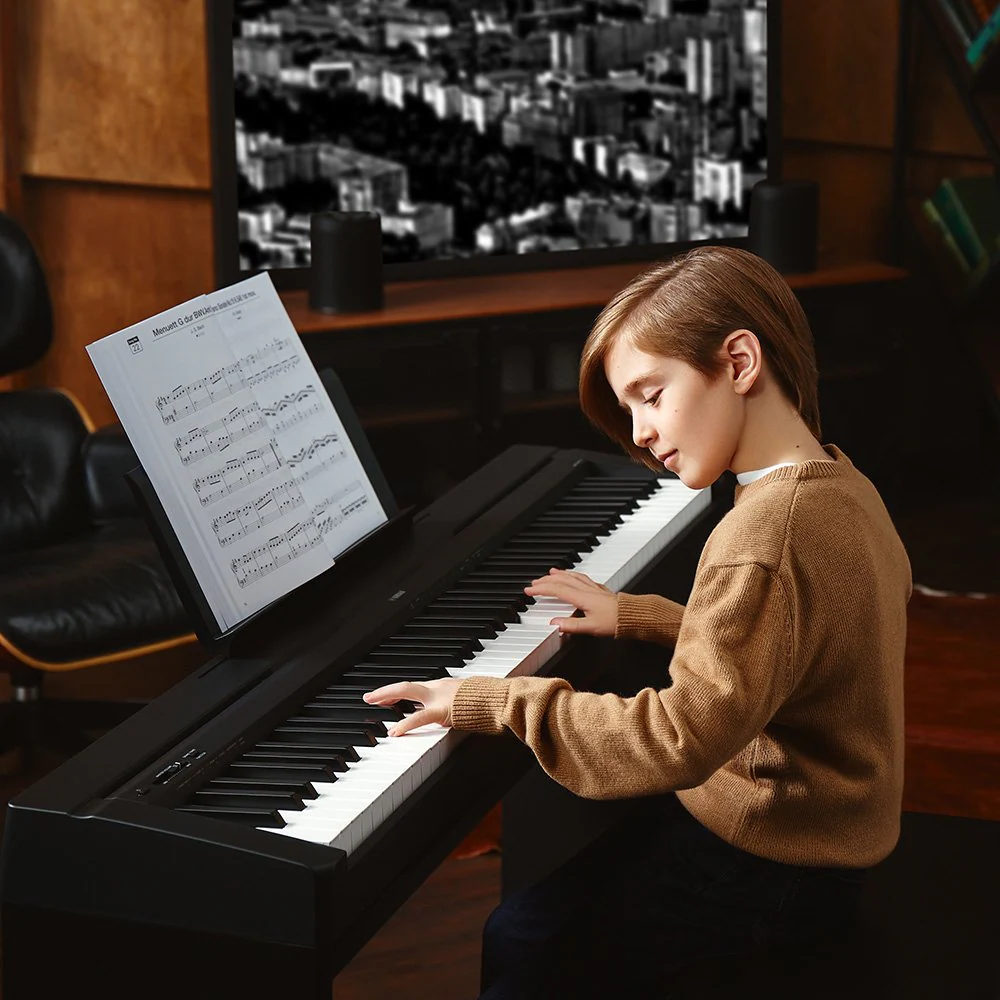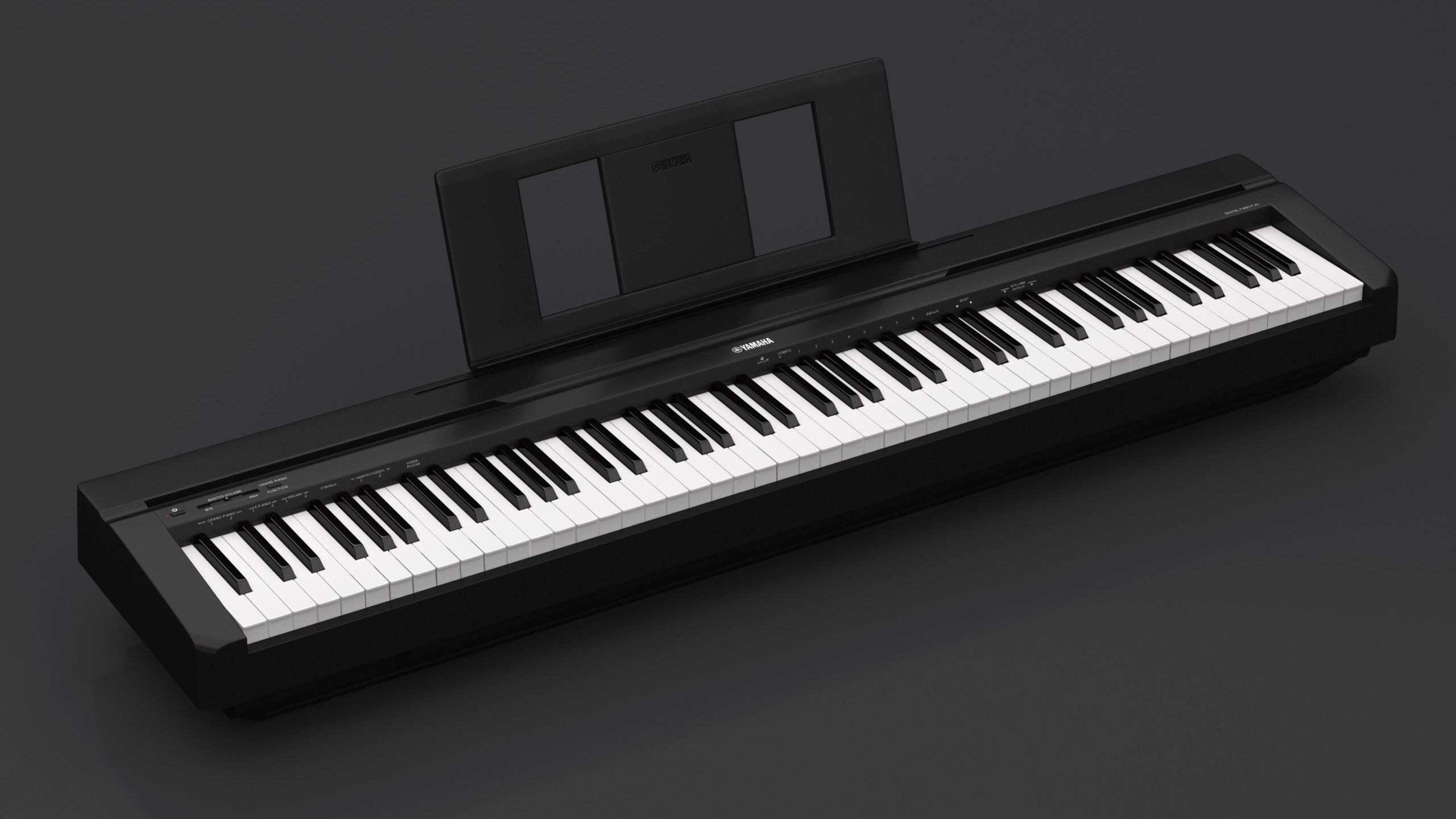Are you thinking about learning a musical instrument but feeling overwhelmed by all the options? As someone who has been playing both piano and guitar for years, I have to say, it’s not an easy decision. Both instruments are incredibly versatile and popular, making it difficult to choose just one. But don’t worry – in this article, we’ll compare the two and help you decide which one is easier for you to learn.
So, if you’re ready to embark on a musical journey but unsure of which path to take, keep reading as we dive into the world of piano and guitar playing. We’ll discuss their unique characteristics, learning curves, and more so that by the end of this article, you’ll have a clearer idea of which instrument is right for you. Let’s get started!
So, is it easier to learn piano or guitar?
This is a difficult question to answer definitively because it ultimately depends on the individual and their personal learning style. However, there are some key differences between learning piano and guitar that can help inform your decision.
On one hand, piano may be seen as easier to learn in terms of understanding music theory. The layout of the keys makes it easier to visualize scales, chords, and melodies. Additionally, most beginner piano pieces tend to use only one hand at a time, making it less physically demanding than playing guitar.
However, guitar has its own advantages when it comes to ease of learning. Many people find the tactile experience of strumming strings and pressing frets more intuitive than pressing keys on a keyboard. Plus, with only six strings compared to 88 keys on a piano, there is less information for beginners to process at once.
Another aspect to consider is the type of music you want to play. Piano tends to be associated with classical or jazz music while guitar is often used in popular genres like rock or folk. So if you have a particular musical preference or goal in mind, that could influence which instrument would be easier for you personally.
Ultimately though, both instruments require dedication and practice in order to become proficient players. It’s important not to discount either option based solely on perceived difficulty – choose the instrument that resonates with you and enjoy the journey of learning something new!
Understanding the Basic Concepts of Piano and Guitar
When you take a peek into the world of music, two instruments often catch your eye – piano and guitar. These two popular instruments are quite different in their structure and playing techniques, but both provide endless opportunities for creating beautiful melodies. The piano is a versatile instrument where notes are produced by striking keys with fingers. These keys correspond to strings inside the piano that vibrate to produce sound. On the other hand, a guitar produces sounds when its strings are plucked or strummed.
In terms of learning curve, those new to music may find it easier to begin with the piano as there is a clear visual representation of notes on its keyboard — lower pitches on the left gradually shifting up towards higher ones on the right. Also, each key represents one note which allows for straightforward understanding of chords and scales.
Contrarily, mastering guitar requires comprehending frets along with string coordination; this can be challenging initially but opens up vast possibilities once understood.
- Piano:
- The keys represent individual musical notes.
- Able to play multiple tones at once (chords).
- Guitar:
- The frets divide each string into semi-tones.
- Can also play chords but requires specific finger positions across multiple strings.
No matter what path you choose in exploring these magnificent tools of melody; practice makes perfect!
The Physical Challenges in Learning Piano vs. Guitar
In the world of music, mastery of an instrument is indeed a glorious achievement. Let’s start with the piano. Those black and white keys may seem intimidating for beginners. The primary physical challenge lies in hand coordination; your left hand might be playing one rhythm while your right maneuvers another entirely different one. It’s like patting your head while rubbing your belly – it requires concentration and practice to perfect this simultaneous operation! Furthermore, pianists need dexterity in their fingers to press multiple keys at once or perform quick successions of notes.
Meanwhile, for the guitar, a unique set of hurdles awaits aspiring maestros.
- The initial discomfort can prove daunting as fingertips callous from pressing down on metallic strings.
- Certain chord shapes demand considerable finger flexibility which can feel unnatural at first.
- Strumming needs not just rhythmic precision but also involves intricate pick control exercises.
Remembering all the different chords and transitioning smoothly between them adds another layer to these challenges. Despite these obstacles, mastering either instrument offers immense satisfaction and opens up avenues for self-expression that no other medium can offer. Music truly is magic when you get past its tribulations!
Read also: Can You Learn Piano On A Keyboard?
Evaluating the Learning Curves for Both Piano and Guitar
Here, I provide a fascinating insight into how different instruments demand unique sets of skills. Firstly, let’s explore the world of pianos.
The initial stages of learning to play the piano can be relatively straightforward. Piano keys are laid out in a linear fashion, which makes understanding musical theories like scales and chords simpler compared to other instruments. Each key corresponds directly to one note, so you don’t need to worry about pitch variation on a single key as with some other instruments. However, moving beyond these basics, complexities arise when students start working on coordinating their two hands – playing different rhythms or parts simultaneously is no small feat.
From here we move onto guitars.
Becoming proficient at guitar often starts off as more challenging than its piano counterpart due largely because it requires mastering certain physical techniques such as finger placement and strumming patterns before even producing desired sounds. The fretboard layout also necessitates an understanding of sharps and flats early on that isn’t immediately required in beginning piano lessons. Over time though, things may ease up slightly; switching between chords becomes quicker through muscle memory development allowing players more creative freedom sooner.
- Piano: straight-forward at first but complex coordination later.
- Guitar: physically challenging initially then eases with muscle memory.
In conclusion: while both instruments present their own challenges over time, they each reward perseverance uniquely – just like any new skill worth pursuing!
 is it easier to learn piano or guitar
is it easier to learn piano or guitar
Piano vs. Guitar: Considering Your Personal Preferences and Musical Goals
When it comes to choosing between piano and guitar, there are several factors that should come into consideration. First and foremost is your personal preference. Which instrument do you feel a stronger connection with? For some people, the gentle strumming of a guitar immediately stirs their soul, while others might be mesmerized by the grandeur sound of a piano reverberating through an open room. Don’t overlook this emotional aspect; after all, music is all about passion and expression.
Next on the list are your musical goals. Are you looking to join a band or dreaming about performing solo concerts? While both instruments are versatile enough for either situation, each has its strengths. A guitar can easily be carried around making it perfect for impromptu jam sessions or street performances whereas pianos require more planning due to their large size and weight.
Your future musical aspirations might also influence your decision:
- If you’re interested in classical music or want flexibility in playing multiple notes at once (polyphony), a piano would probably suit you best.
- If rock or folk music is more your style, then learning how to play chords on the guitar could serve those genres well.
In essence, when deciding between these two magnificent instruments – listen not only with your ears but also heed what resonates within heart’s chamber. It’s about finding harmony between personal inclinations & intended objectives which will guide towards right instrumental verse setting rhythm for melodious journey ahead!
You may also like: williams vs yamaha piano
Conclusion: Choosing Between Piano and Guitar Based on Your Specific Needs
So you’ve decided to learn a musical instrument but are stuck between piano and guitar? Don’t worry, it’s not as daunting as it seems. The challenge lies in choosing one that perfectly matches your specific needs.
If you’re drawn to the allure of powerful, rich melodies then piano might be your best bet. Pianos allow for more harmonious and complex compositions due to their wide range of notes. Their structure makes it easier for beginners to understand music theory as well – each key represents a different note which aligns neatly with musical notation. However, pianos are bulky and not easily transportable unlike guitars.
- Piano Pros: Wide range of notes, better understanding of music theory.
- Piano Cons: Large size, lack mobility.
In contrast, if you’re looking for something portable and versatile across various genres like rock or folk music – consider the guitar. Guitars are lightweight making them ideal for performances on-the-go or impromptu jam sessions with friends. Plus playing chords can be easier because they require fewer fingers than a piano typically does.
- Guitar Pros: Portable, versatile across genres.
- Guitar Cons: More difficult grasp on music theory initially due to fret layout.
The key is taking time considering what fits your lifestyle best in terms of budgeting space & time commitment before making any concrete decision!

